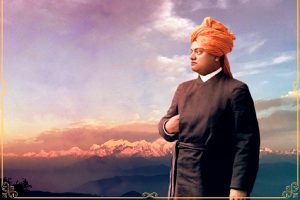Coming after two months of farmers’ protest sit-in on Delhi’s borders, the Budget Session of Parliament began on 29th January, focusing afresh on the three controversial farm laws, rather than discussing financial policy or the state of the economy.
The farm laws were passed hurriedly in the monsoon session of last year. The Opposition had maintained its voice was not heard when the laws were rushed through. The farmers complained the laws threatened their livelihood, and they were ready to suffer any pain to get them repealed. The pressures were high. Nearly the entire Opposition boycotted President Ram Nath Kovind’s address to Parliament, expressing disappointment and anger the way the Government had responded to the farmers. Monday had some peace when Finance Minister Nirmala Sitharaman read out her Budget speech in the Lok Sabha.
Advertisement
The members were busy figuring out the budgetary proposals, and what they meant for the economy or individuals. From the second day, the two Houses could not forget the farmers’ issues. Rajya Sabha Chairman M Venkaiah Naidu could work out peace fast by integrating 10 hours of the debate on the President’s Address with five hours on the farmers’ agitation.
The Lok Sabha had also attempted to work out a similar solution but remained in turmoil throughout the last week. It was difficult to keep track of adjournments and the hours when the Lower House transacted business. The members kept shouting slogans even as the government tried to push through some business. This was despite Speaker Om Birla giving repeated assurances that he would allow the Opposition ample opportunity to speak on whatever issue the members had in their mind.
Locket Chatterjee (BJP) moved the Motion of Thanks to the President’s Address on Tuesday evening, but could not conclude due to disruptions. The Rajya Sabha Opposition took up the business, satisfied as the Elders were that they could devote sufficient time to the farmers, while referring to other issues. As it turned out, almost all the talking was in favour or opposed to the farmers’ unprecedented protest.
Across the parties, the Opposition delivered good speeches on the farmers’ plight, while the ruling benches attacked the Congress mainly. On behalf of the Government, Agriculture Minister Narendra Singh Tomar made an effective intervention at the near-end of the three-day debate on Friday.
The debate showed that while the ruling benches concentrated on technicalities of the laws, and narrated the Modi government’s achievements in several fields, the Opposition members from across the country articulated the farmers’ fears, and expressed shock the way the police had dug up trenches and planted iron nails on roads around the sites where the farmers sat on dharna.
How disturbed the Rajya Sabha Opposition was on the farmers’ agitation, and wanted a discussion first on the farmers’ demands, was clear when there was a complete wash out of the proceedings on Tuesday after repeated adjournments. Order came the next day when Parliamentary Affairs Minister Pralhad Joshi said that there was a consensus on the combined 15-hour debate.
The Question Hour and the Zero Hour, as also the private members’ business on Friday were cancelled. The debate began on Wednesday after the Chairman, under Rule 255 of the Rules of Procedure and Conduct of Business directed three Aam Aadmi Party (AAM) members Sanjay Singh, Sushil Kumar Gupta and Narain Dass Gupta to withdraw immediately from the House for the day for shouting slogans. Bhubaneswar Kalita (BJP) initiated the debate and moved the Motion of Thanks to the President’s address, praising the Government’s handling of Covid-19. He said the farm laws had already benefited 10 crore farmers.
With PM Narendra Modi listening from his seat, Vijaypal Singh Tomar (BJP) seconded the Motion, and said the laws would eliminate middlemen from farm trade. Notices were given for 118 amendments but many of them could not be moved due to the absence of members.
In his speech, Leader of the Opposition Ghulam Nabi Azad gave historical perspective on the farmers’ struggles and how they were successfully led by Mahatma Gandhi, Sardar Patel and other freedom fighters.











